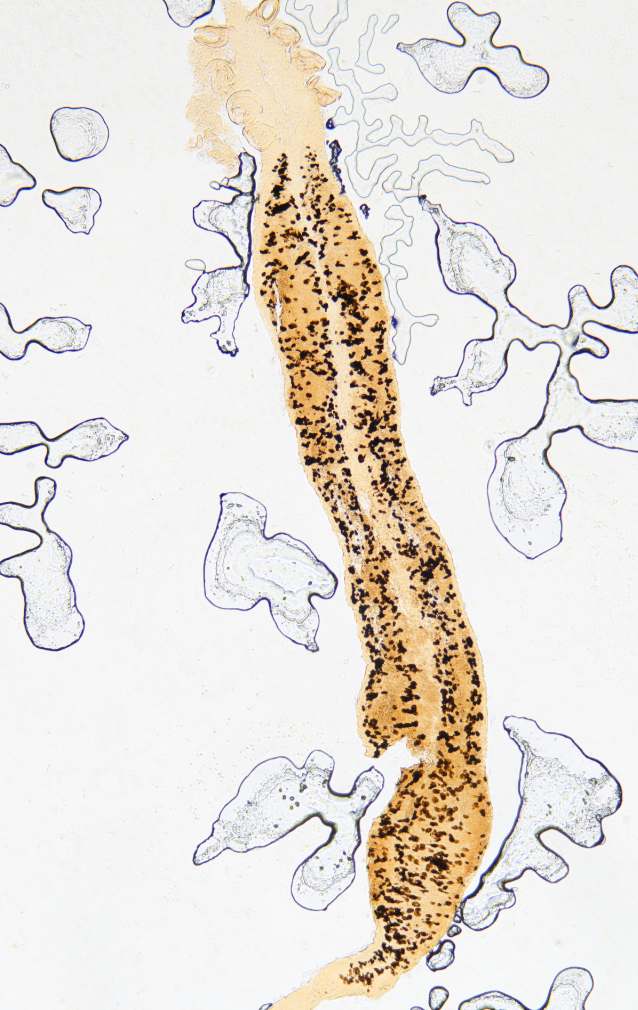What are parasites?
Parasites are organisms that live on or inside another organism and derive their nourishment from it, often causing harm to the host in the process. These organisms come in various forms, including protozoa, helminths (worms), and ectoparasites like ticks and lice. Parasitic infections can affect humans, animals, and even plants, posing significant health threats and economic burdens.
Anti-parasitic agents refer to substances or medications designed to combat and eliminate parasitic infections. The development of effective anti-parasite treatments is crucial in preventing the spread of diseases, reducing morbidity and mortality, and improving overall public health. These agents may target different stages of the parasite’s life cycle, aiming to either kill or inhibit the growth and reproduction of the parasites.
What are the risks of parasites?
Parasites pose various risks to the health and well-being of both humans and animals. These risks can manifest in physical, physiological, and economic consequences.
Parasitic infections often lead to a range of health issues. In humans, common symptoms include fatigue, gastrointestinal disturbances, malnutrition, anaemia, and organ damage. Chronic infections can have debilitating effects, impairing cognitive development in children and increasing their susceptibility to other infectious diseases.
For animals, parasites can cause weight loss, decreased productivity, and in severe cases, mortality. The impact on host health is often influenced by factors such as the type of parasite, the host’s immune response, and the overall health status of the host organism.
Parasites contribute significantly to the global burden of disease. Many parasitic infections are endemic in certain regions, particularly in tropical and subtropical areas. This prevalence can lead to widespread health disparities, as affected populations often lack access to proper healthcare and preventive measures. The economic burden is substantial, with costs associated with medical treatment, loss of productivity, and impaired agricultural output.
Parasitic infections have the potential to become chronic, persisting for extended periods in the host organism. Chronic infections may lead to long-term complications, including organ damage, cognitive impairment, and reduced quality of life. In some cases, the persistence of parasites within a host population can result in ongoing transmission, making it challenging to control the spread of the infection.
Parasites can contribute to the emergence of drug resistance. The overuse or misuse of anti-parasitic medications can lead to the development of resistance, rendering certain drugs ineffective. This poses a significant challenge for treatment strategies, necessitating ongoing research and the development of new therapeutic approaches to stay ahead of evolving resistance patterns.
The risks associated with parasites encompass a broad range of health, economic, and societal consequences. Addressing these risks requires a multifaceted approach, including effective treatments, preventive measures, and a focus on global health equity to ensure that vulnerable populations are not disproportionately affected by the burdens of parasitic infections.

What are some tests to diagnose parasites?
Diagnosing parasitic infections often involves a combination of clinical evaluation, laboratory tests, and sometimes imaging studies. The choice of diagnostic tests depends on the suspected type of parasite, the patient’s symptoms, and the geographical location.
Stool examination
This test involves examining a stool sample under a microscope to identify the presence of parasite eggs, cysts, or larvae.
Antibody tests
Serological tests are conducted to detect antibodies produced by the immune system in response to specific parasites.
Antigen tests
Some tests detect parasite-specific antigens in the blood, helping diagnose infections like malaria or schistosomiasis.
Urine tests
Similar to stool examination, this involves microscopic examination of urine to identify parasite eggs, larvae, or cysts.
Serological tests
These tests help detect specific antibodies in the blood and are used for diseases like Chagas disease and leishmaniasis.
Polymerase Chain Reaction (PCR)
Identifies DNA/RNA of parasites in blood or tissues; helps diagnose malaria, leishmaniasis, and filariasis.
Loop-mediated isothermal amplification (LAMP)
A rapid molecular technique used to detect parasitic DNA, particularly in resource-limited settings.
Ultrasound
Visualising organs and tissues, an ultrasound can identify cysts, abscesses, or structural changes caused by parasitic infections.
Computed tomography (CT) or Magnetic Resonance Imaging (MRI)
Detailed images of internal structures; diagnoses certain parasitic infections.
It’s crucial to note that the selection of diagnostic tests should be based on clinical presentation, epidemiological factors, and the suspected type of parasite. In some cases, multiple tests may be necessary to achieve an accurate diagnosis, and consultation with a healthcare professional is essential for proper evaluation and interpretation of results.
Why are anti-parasite medication and treatment important?
The importance of parasitic medication and treatment lies in their capacity to alleviate suffering, prevent the spread of infections, and contribute to the overall health and well-being of individuals and communities. These interventions play a vital role in achieving global health goals and reducing the burden of parasitic diseases on a global scale.

Public health impact
Parasitic infections affect millions of people worldwide, especially in tropical and subtropical regions. Effective treatment helps reduce the burden of diseases, preventing widespread outbreaks and improving public health.

Prevention of morbidity and mortality
Parasitic infections can lead to severe health issues, including malnutrition, anaemia, and organ damage, or death. Timely and appropriate treatment can prevent or alleviate these adverse health outcomes.

Economic impact
Parasitic diseases can result in a significant economic burden due to healthcare costs, loss of productivity, and decreased agricultural output. Treatment not only alleviates suffering but also contributes to economic well-being.

Prevention of spread and transmission
Effective treatment controls the spread of infections. Parasites have complex life cycles involving multiple hosts, so treating infected individuals disrupts the cycle, reducing the risk of further infection.

Preventing chronic infections
Parasitic infections can become chronic, leading to long-term health complications. Treatment aims to eliminate the parasites from the body, preventing chronic conditions and reducing the need for ongoing medical care.

Improving quality of life
Parasitic infections cause symptoms such as fatigue, pain, digestive issues, and skin problems, affecting routines and the quality of life. Medication helps relieve these symptoms and enhances the well-being of individuals.

Addressing drug resistance
Regular use of anti-parasitic medications requires ongoing research and development to stay ahead of emerging drug resistance. Investing in new treatments and strategies is essential to combat evolving resistance patterns.

Global health equity
Access to effective anti-parasitic medication is crucial to achieve global health equity. Treatments must be affordable, available, and accessible to all populations, regardless of socioeconomic status or geographic location.

Mantoux test
Used for diagnosing latent tuberculosis; this skin test involves injecting a purified protein derivative (PPD) into the skin.
FAQs

The choice of the best parasite medication depends on the type of parasite causing the infection and the specific circumstances of the individual. Different parasites may require different medications, and the effectiveness of a drug can also vary based on factors such as the life stage of the parasite and the region the infection occurred.
It's important to note that the specific medication and dosage depend on factors such as the type of parasite, the severity of the infection, and individual health considerations. Self-diagnosis and self-medication can be risky, and it's crucial to consult with a healthcare professional for a proper diagnosis and prescription. Preventive measures, such as practising good hygiene, avoiding contaminated water and food, and taking precautions to prevent insect bites, also play a significant role in reducing the risk of parasitic infections.
Yes, anti-parasitic pills can be highly effective in treating parasitic infections. The choice of medication depends on the type of parasite causing the infection, and there are various classes of drugs targeting different parasites.
Get in touch with a gastrointestinal specialist for anti-parasite medication
Emphasising the significance of proactive healthcare, it is often stated that prevention is preferable to cure. Taking charge of your well-being by seeking timely medical attention and early diagnosis can be instrumental in managing gastrointestinal issues effectively. When it comes to gastroenterological concerns, addressing symptoms promptly is vital for optimal health.
Consulting a seasoned expert in the field can provide you with the guidance and intestinal parasite treatment needed to address these issues before they escalate. Meet Dr. Suhirdan Vivekanandarajah, a highly accomplished gastrointestinal specialist based in Sydney, Australia. With extensive training across various facets of gastroenterology, Dr Suhirdan has been dedicated to offering patients exceptional support and treatment for their medical needs over many years.
Book a consultation today for anti-parasite medication, to safeguard your gastrointestinal well-being.
